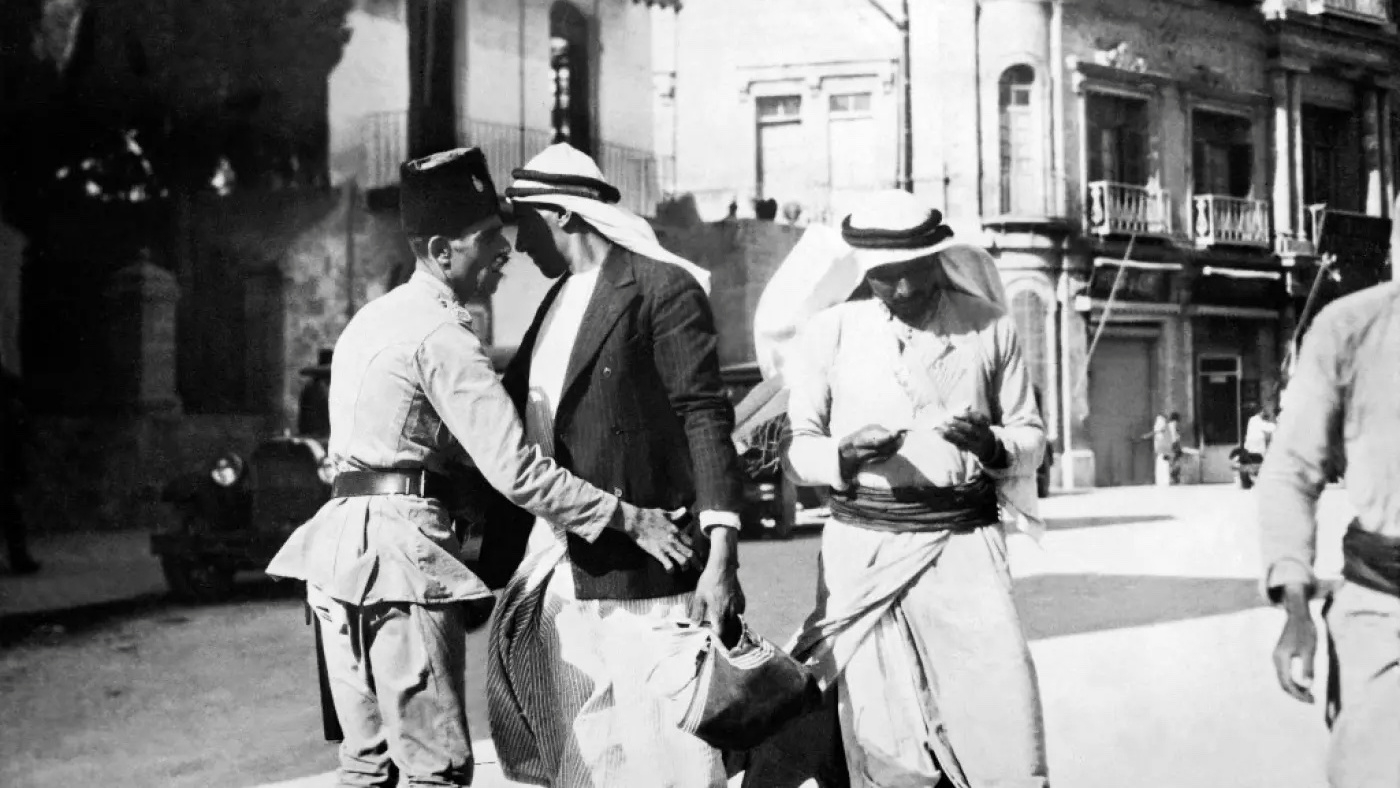Policy of Deceit: Britain and Palestine, 1914-1939

In 1939, at the request of the Arab delegation to the London conference on the future of Palestine, the British government finally agreed to the publication of the wartime correspondence between Sir Henry McMahon, British high commissioner in Cairo, and Sharif Hussein of Mecca, the Ottoman-appointed chief religious authority of Islam’s holiest shrines.
The Arabs and their supporters had consistently claimed since 1920 that in the correspondence, McMahon, in return for the sharif leading an Arab revolt against Ottoman forces, had included the Palestine region in the British government’s offer of an extensive, independent Arab state. On the other hand, successive British governments since 1920 - and to this day - have argued that Palestine was excluded from the area promised to the sharif.
Although publication of the correspondence - 10 letters exchanged between July 1915 and March 1916 - had been urged from all sides of both Houses of Parliament on no fewer than 24 occasions since 1920, successive British governments had always objected on the ground that it would be "detrimental to the public interest".
Moreover, throughout the 1920s and 1930s, Anglo-Arab relations were severely soured by such steadfast refusals. Only in February 1939, when Neville Chamberlain’s government wished to extinguish the Palestinian revolt, with war clouds gathering throughout Europe, and the need to "secure Imperial routes to the East", did the government agree to its publication.
At the same conference, the British government also agreed to establish an Anglo-Arab committee to investigate the correspondence in detail.
Stay informed with MEE's newsletters
Sign up to get the latest alerts, insights and analysis, starting with Turkey Unpacked
Presided over by Frederic Maugham, the lord chancellor, the committee, following four lengthy meetings, ended in disagreement: in a joint report, both sides held to their original positions, the Arabs maintaining Palestine was promised to the sharif, and the lord chancellor arguing that "on a proper construction of the correspondence, Palestine was in fact excluded". The Second World War then intervened, and the correspondence disappeared from the political arena, never to be officially re-examined.
The evidence reviewed in this book reveals that the British case was untenable. A close and systematic study of the official records confirms that the sharif was indeed entitled to consider Palestine included in the area promised for Arab independence.
What is more surprising, in fact, shocking, is that all the senior officials involved on the committee, and in the cabinet, who were kept fully informed of the committee’s proceedings, knew and acknowledged privately that the British case was seriously weak.
Poisoned chalice
The lord chancellor, having been briefed by Foreign Office officials and having read the relevant documents, was forced to produce "out of the air" contentions in an attempt to bolster the British case, contentions which the government had never previously brought forward, and which he himself did not believe.
He made this clear in a note to the colonial secretary, Malcolm MacDonald, who had appointed him to chair the committee and defend the government’s position. His despair at having been handed such a poisoned chalice is revealed in the same note:
… how pleased I would be if I could hear of anyone in the Foreign Office or the Colonial Office or in the Government who could make one useful & helpful suggestion to assist in meeting or contesting the Arab claims.
MacDonald, equally worried at the evident weakness of the British case, had also turned to the attorney general, Sir Donald Somervell, for advice, but having read the relevant papers, Somervell’s observations provided no comfort to the colonial secretary:
It is, I think, very difficult to suggest that McMahon could have regarded Palestine as automatically excluded… my own view [is] that the more we can avoid this issue the better, and that the more closely it is gone into, the greater I think our difficulties will appear to be.
Thus, in 1939 the government’s two most senior legal officials agreed that the British contentions were so weak that they would not stand scrutiny by an independent judicial inquiry, or by parliament or public opinion. Yet, in a shrewd but dishonourable exercise, in what one scholar has termed "sharp practice", the lord chancellor publicly maintained the government’s position in the report. For his part, the colonial secretary summed up the committee’s conclusions by informing his colleagues, "We have let the ball touch one stump without removing the bails."
MacDonald’s cricket analogy was indeed apt: for a batsman to be "out", at least one of the two bails needs to be removed from the top of the three stumps. The lord chancellor, batting, had been at the crease, defending his wicket, namely the government’s red line (the exclusion of Palestine), while skilfully conceding, whenever expedient, some, but not all, of the Arab contentions bowled in his direction.
Since 1939, the truth of this matter has never been acknowledged by any British government. This book suggests it is time to do so: the evidence, both textual and contextual, is overwhelming. I hope this book will contribute to setting the record straight concerning Britain’s multiple wartime promissory notes about Palestine and to the historiography of Britain’s mandatory policies during the 1920s and 1930s, which led inevitably to the events of 1948 and whose legacy remains an "open wound" for all who live between the River Jordan and the Mediterranean Sea, as well as for the millions of refugees beyond Palestine’s borders.
This is an excerpt from Policy of Deceit: Britain and Palestine, 1914-1939 by Peter Shambrook, published by Oneworld Academic.
The views expressed in this article belong to the author and do not necessarily reflect the editorial policy of Middle East Eye.
Middle East Eye delivers independent and unrivalled coverage and analysis of the Middle East, North Africa and beyond. To learn more about republishing this content and the associated fees, please fill out this form. More about MEE can be found here.






